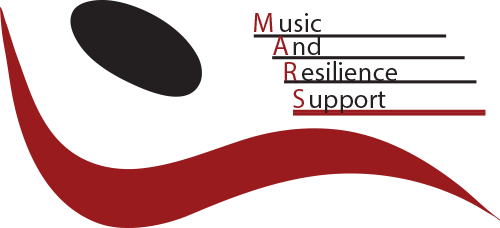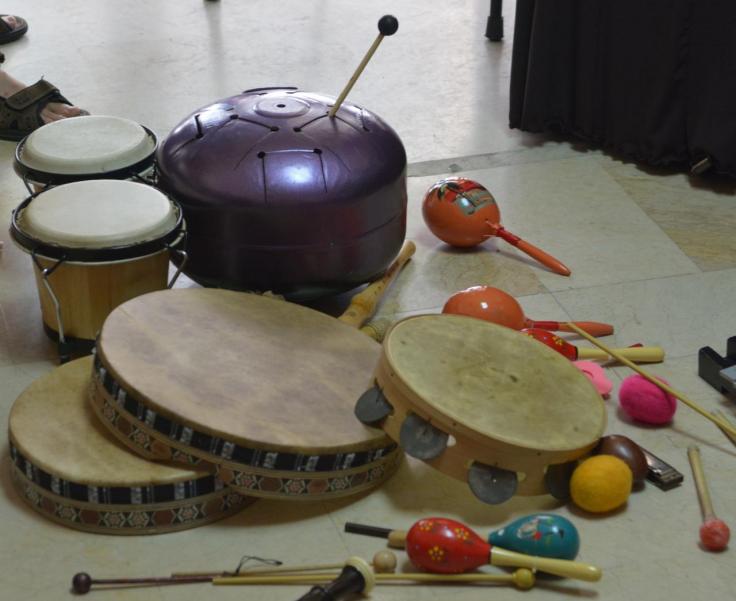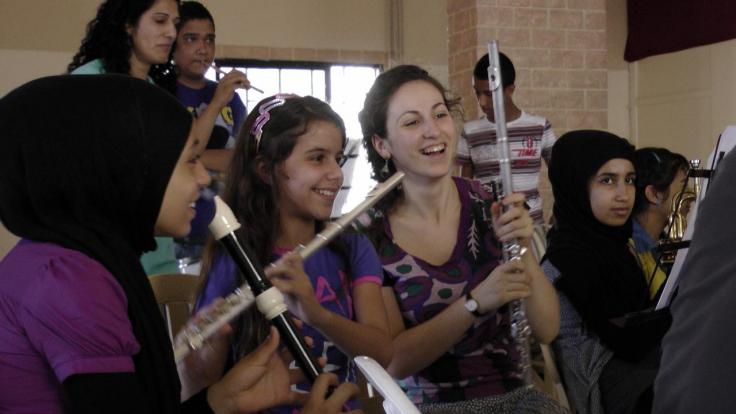Music And Resilience Support (MARS) responds to an urgent and ever increasing need to develop efficient and cost-effective strategies in support of deprived, marginalized communities in diaspora due to military/political/social conflict, both within Europe and farther afield. The project has developed a full training course in psychosocial music intervention, for community musicians, music therapists and health and education workers. This will contribute to the development of a specialized workforce trained in psychosocial intervention, as a protection against multiple risk factors emerging in under-resourced and marginalized communities, where chronic high- or low-level stress affects emotional, cognitive and social functioning, in particular in children and adolescents, undermining the community's capacity to care for itself internally and to respond to the external environment with adaptation and flexibility.
The MARS pilot project has called into cooperation a group of highly competent organizations working with music as a powerful tool for psychosocial rehabilitation and reintegration. 5 of the 6 partners are European, representing a wide range of focusses in the promotion of musical rights, education and well-being: International Music Council (France), Nordoff-Robbins Music Therapy UK, the Catalan Choral Movement (Spain), Prima Materia Association (Italy), Euridea (Italy). The sixth partner, located in Lebanon, the National Institution for Social Care and Vocational Training, has brought a unique and essential contribution to the project, after almost forty years of caring for the country's refugee population, historically Palestinian and currently also Syrian, and has provided teaching expertise and a location for project fieldwork.
The pilot project permitted these partners to come together to optimize resources, and to develop and test a high quality, freely accessible on-line training course using ICT-supported open education resources.
This freely available resource has also been developed into a full, certificated training pathway including residential seminars with traditional teaching methodologies, distance tutoring during e-learning and supervised fieldwork opportunities. In addition to certification, completion of the full training is recognized with 'open badges' and provision for ECVET credit.
Central to the training packet is the MARS Online Resource Center, offering new technology teaching materials and methods, and a research/reference section, with bibliography and sitography. The MARS Specialization Profile defines the knowledge, skills and competences of MARS specialists and a Job Offers page allows the posting of vacancies by potential employers and of CVs by suitably qualified and experienced music specialists.
The project's preliminary phase addressed the researching and preparation of the course contents and resources, informed by an initial Needs Analysis. Essential to the project's success was the formation of the MARS Staff Group, comprising 15 highly competent and experienced professionals from the partner organizations who trained together to build coherence in project vision, pedagogy and methodology. Staff guided a pilot group of 15 students from 4 countries (France, UK, Italy, Spain) through the course, providing on-line tutoring and supervision.
The 2nd phase of the project saw the launching of the website, the formation of the student group and initial E-learning in preparation for the MARS Training Seminar, a 10-day residential mobility learning experience in Italy, during which a wide variety of experiential workshops provided the students with hands-on knowledge. Issues raised during this inter-cultural meeting period stimulated essential learning about many of the cross-cultural challenges of working in diaspora communities.
The project's 3rd phase was dedicated to e-learning, divided into 10 modules, of which the final module addressed practical fieldwork; many of the pilot students chose to do this fieldwork in Lebanon, supported by European supervisors and local staff, whilst others worked within their own local community contexts. The fieldwork offered the essential complementary experience of applying assimilated training techniques in a sample community.
The closing phase of the project covered assessment and validation of each student's learning pathway, and documentation and final report writing.
Running parallel to the development of the MARS training and related resources was the realization of Multiplier Events at music education and therapy conferences, both in and beyond the programme countries. These occasions publicized the MARS 'work-in-progress' and results to an extensive audience of experts, students and professionals from related fields of practice, offering workshop activities and discussion forums.
The MARS partnership will continue to organize dissemination events, in order to promote knowledge about the website, resources and training course, and to extend the MARS community as far as possible worldwide.
MARS has resulted in the formation of 2 new teams – training staff, and trained students – for the development and promotion of psychosocial music resources, supported by a tested, sustainable and freely accessible online training and research environment. Partner organizations have benefited from a intense and rich period of exchange and discovery of best practices, the 'ripple effect' of which will generate a network extending throughout Europe and beyond, ultimately resulting in increased availability of psychosocial music interventions for the benefit of suffering communities, wherever they are.



